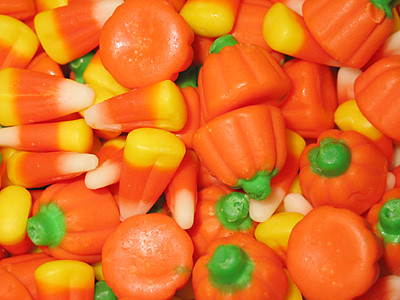With Halloween just around the corner. St. Louis parents are on the lookout for fun, Halloween-themed activities to do with their kids. Whether you're in the mood for super-scary or just some plain old fun with pumpkins, check out this list of can't-miss Halloween activities around St. Louis.
- Visit the St. Louis Zoo for St. John's Mercy Children's Hospitals Boo at the Zoo Nights, which take place nightly from 5:30-8:30 through October 30. For a small admission fee ($1 off for a child in costume), you can enjoy the zoo's "non-scary, kid-friendly Halloween experience." Everything will be lit up and newly decorated, and there are tons of fun things to do. You can go on a Night Hike, listen to Fireside Stories, enjoy Cackling Chicken Strips and Scary S'mores at Lakeside Cafe, and much, much more!
- The Not-So-Haunted-House at the ever-popular Magic House in Kirkwood is also a great option for families of young ones who don't want anything too scary. Storybook characters from more than 15 children's classic tales will "haunt" the museum, and a "Haunted Trail" will be set up for older boys and girls. Costumes are encouraged and the event is free with regular admission ($8.75, 1 and above). The Not-So-Haunted-House will be open Friday, Saturday, and Sunday, October 29-31, and the Magic House will have special extended hours on all three of those days.
- The Jumpin' Pumpkin Jamboree continues at Eckert's Family Farms this weekend October 30-31. Ride a wagon out to the pumpkin patch to pick your own pumpkin, and enjoy live entertainment, pony rides, make-your-own-scarecrow, and plenty of other fun children's activities. The Jamboree takes place at the Belleville, Millstadt, and Grafton Farms.
- We are lucky in St. Louis to have lots of neat pumpkin patches to visit this time of year. Rombach's Family Farm in Chesterfield has a great pumpkin patch, with no admission fee or fee for parking and lots to keep you busy and get you in the Halloween spirit. Stuckmeyer's Farm in Fenton isn't quite as fancy and doesn't have as many pumpkins in it's fields, but they have a huge, fenced-in children's play area with playgrounds, tunnels, mazes, and all sorts of fall fun. Again, no fee for parking or admission. For a list of more area pumpkin patches, visit the PumpkinPatchesandMore.org (and scroll way, way down to the bottom of the page).
- Many local cities and shopping districts are hosting their own Trick-or-Treat Walks in the upcoming week. There will be a Halloween Walk in Downtown Kirkwood on Thursday night from 5-7, Trick or Treat on Main will take place on Historic Main Street in St. Charles on Friday from 3-5, and Trick or Treat in the Central West End will take place on Saturday with both trick-or-treating and a costume parade and contest. Trick-or-treating events will also take place at many malls and libraries; check your local one for details.
- Fright Fest at Six Flags is always a scary, heart-pounding experience. If amusement parks are your thing, you'll love this one. In the daytime, younger visitors can bob for apples and have kid-friendly fun, but when the sun goes down the event is usually best for older kids who like to be frightened . . .
- There are lots of haunted houses around town too, but most are probably a little too scary for younger audiences. Visit this link if you have older kids or or looking for some grown-up Halloween fun.
Photo credit: Flickr

